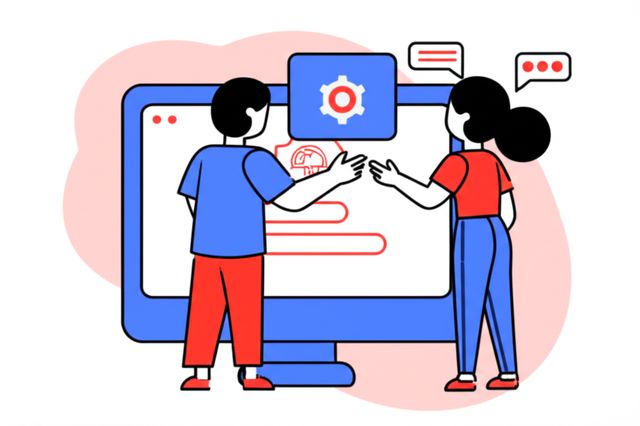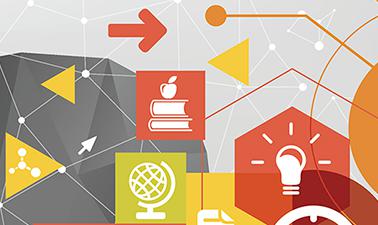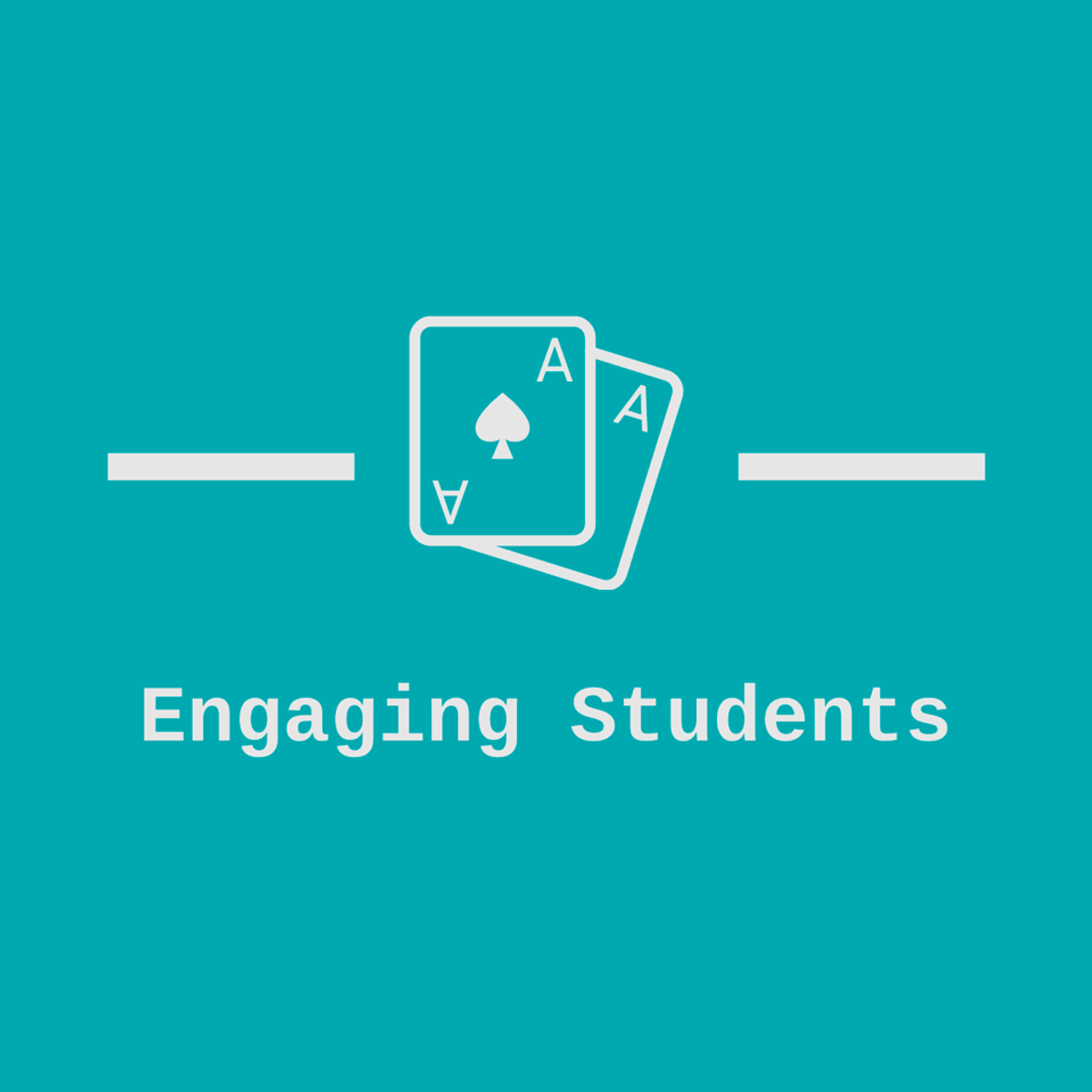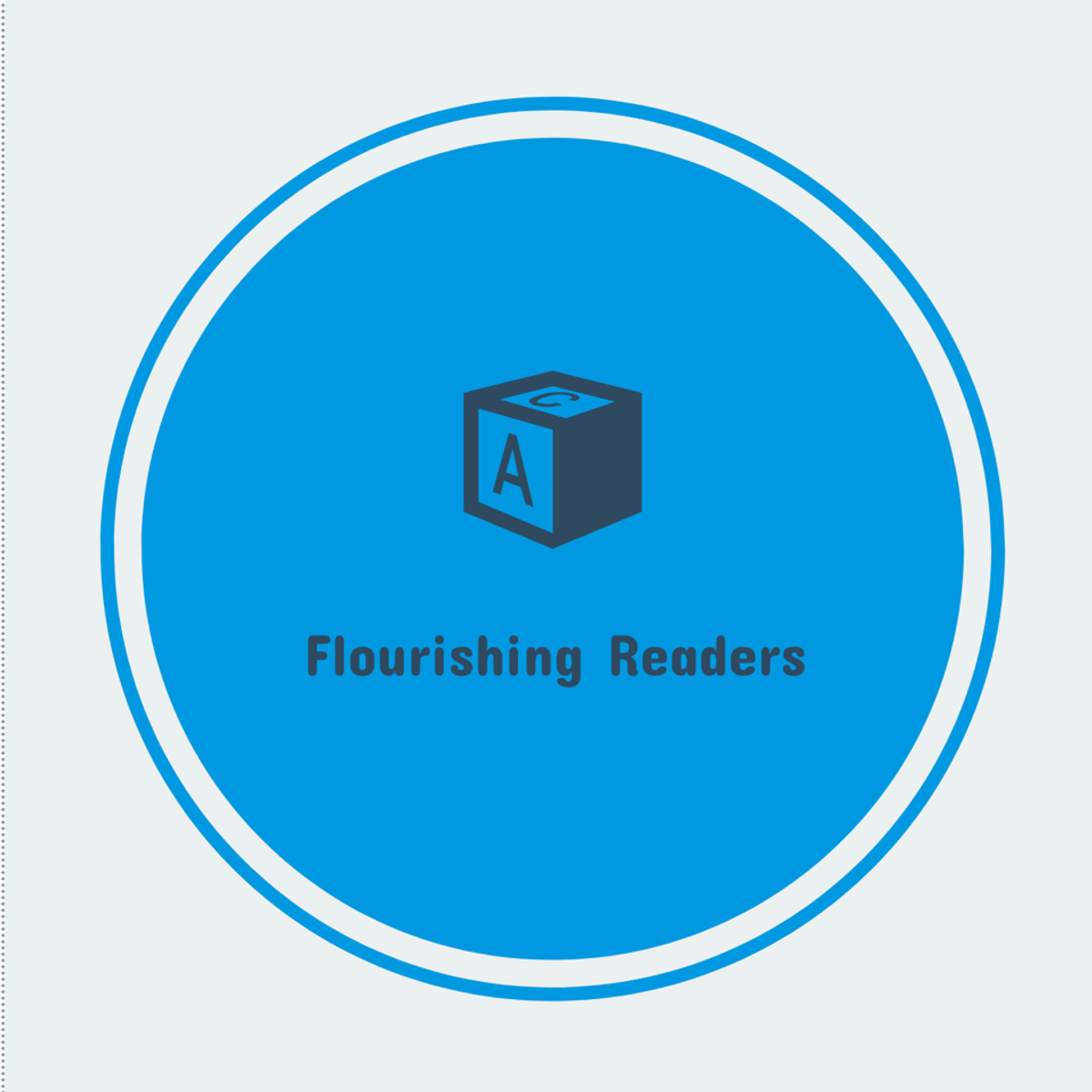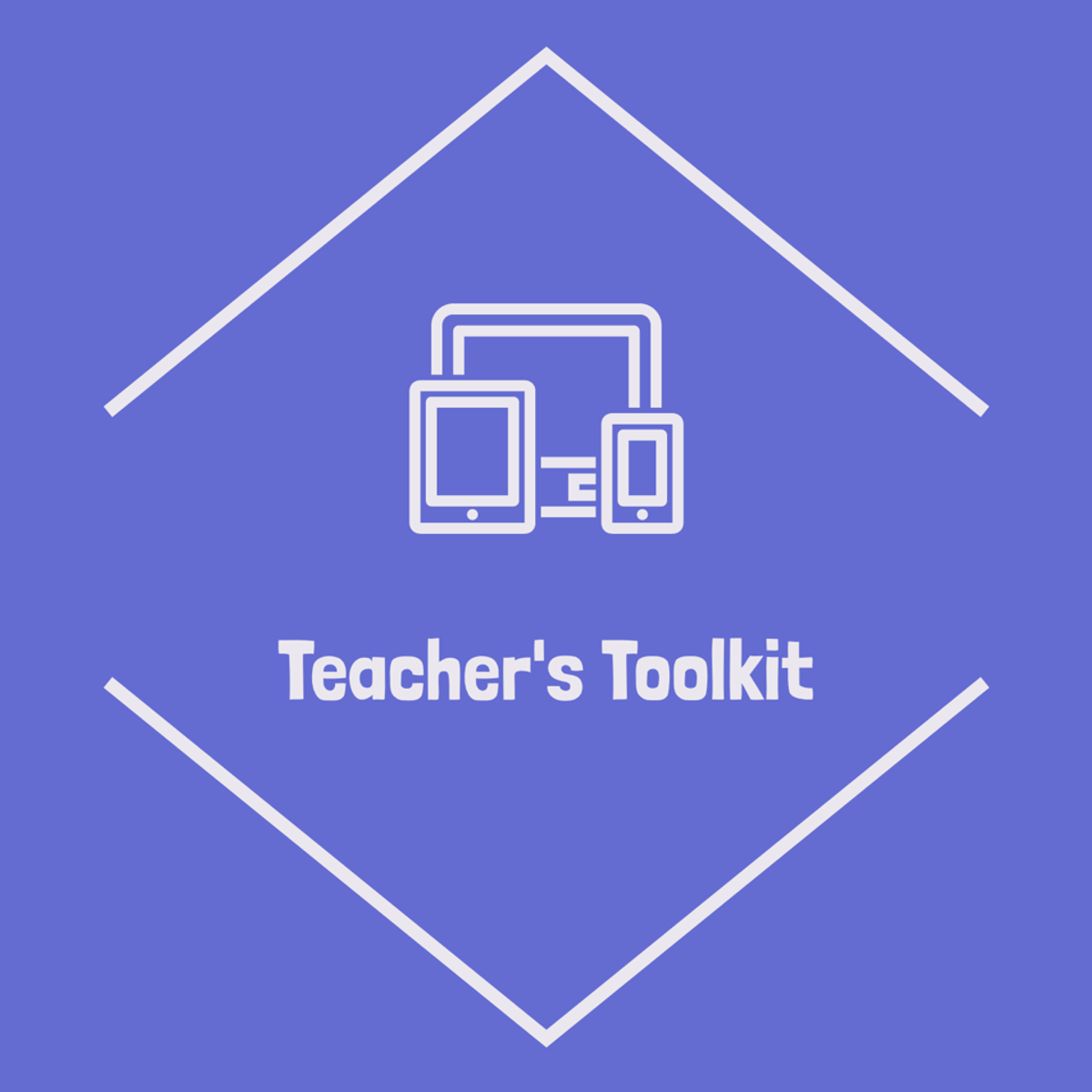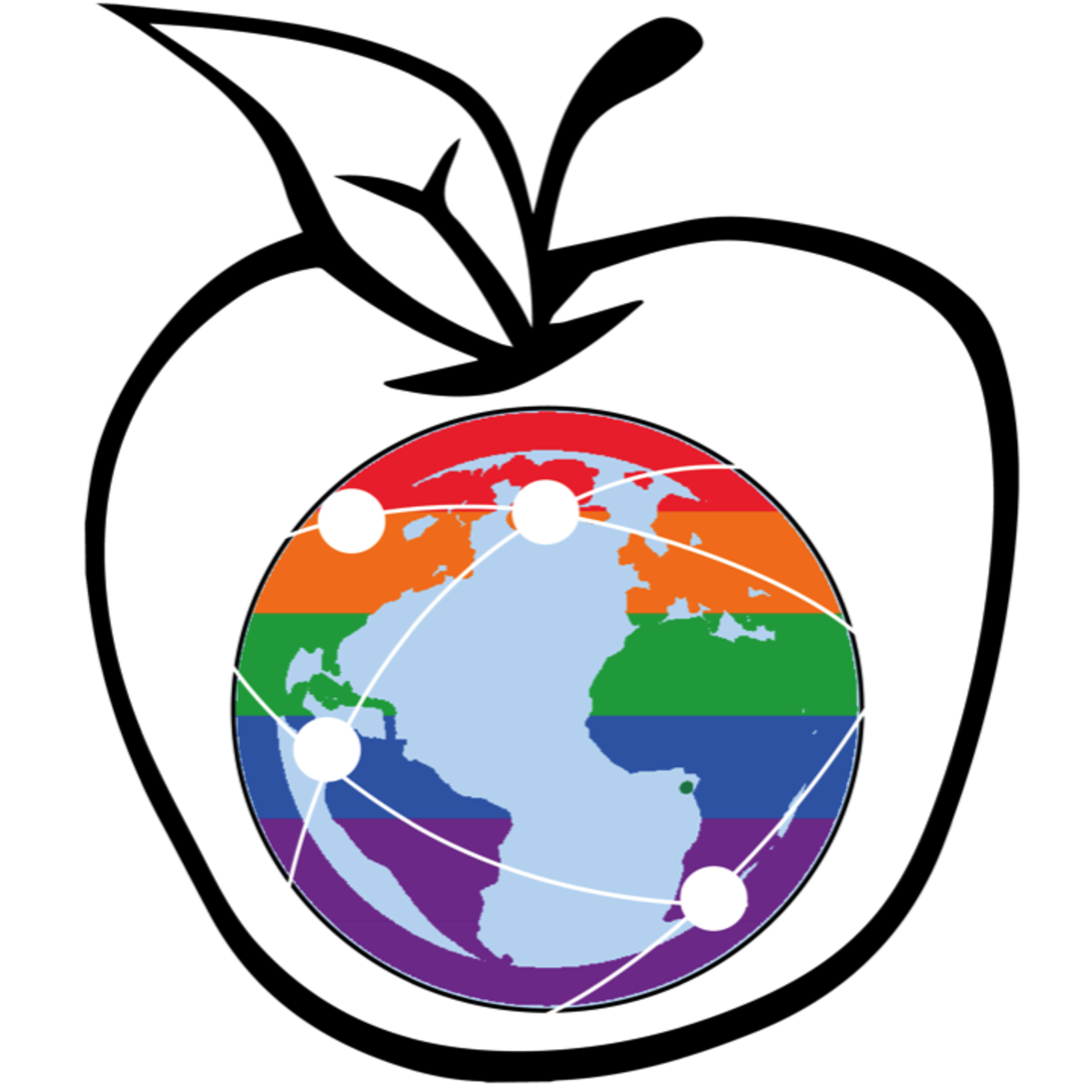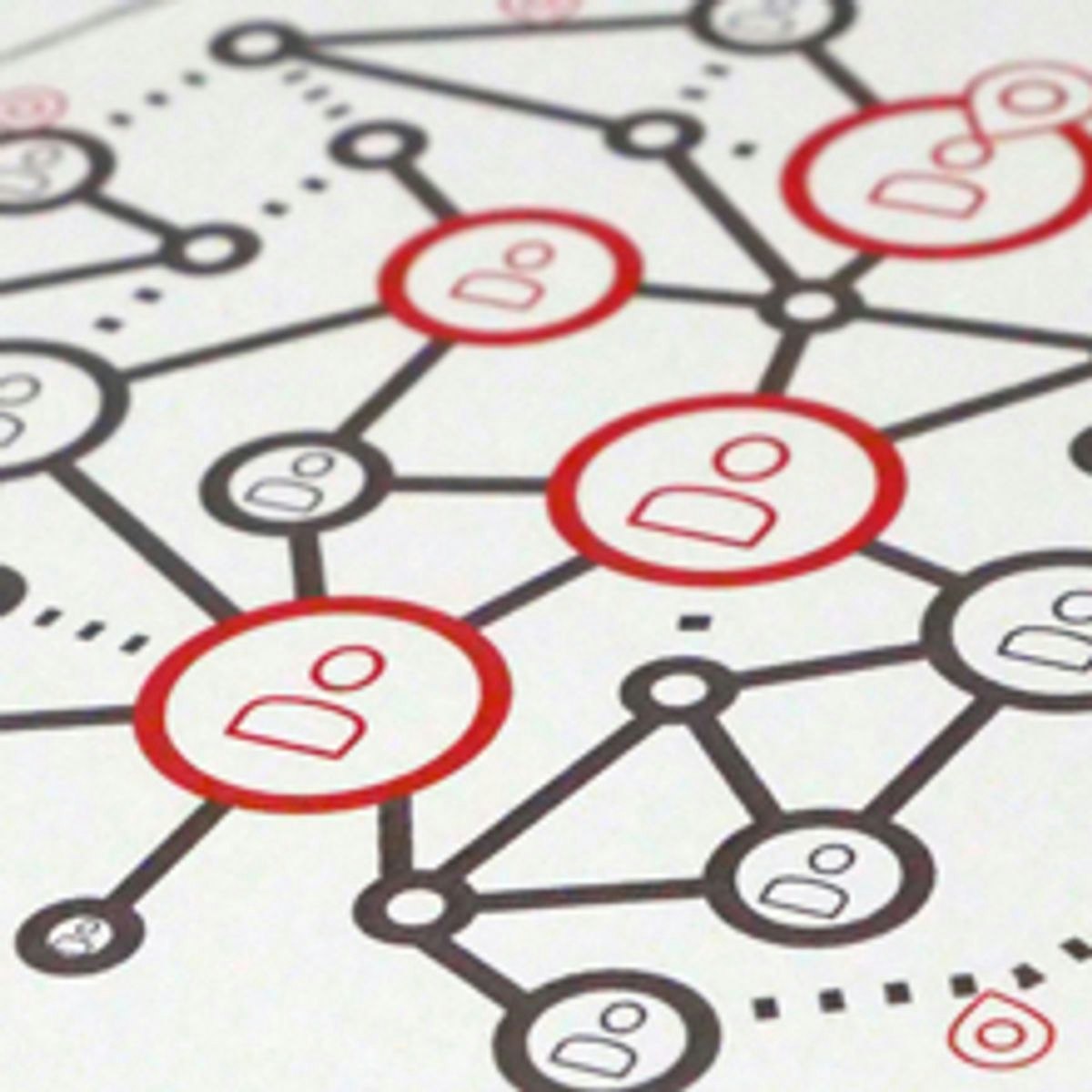Education Technology Specialist
vigating the Path to Becoming an Education Technology Specialist
An Education Technology Specialist, often called an EdTech Specialist or Instructional Technology Specialist, serves as a vital bridge between education and technology. Their primary role is to facilitate the purposeful implementation of technology within academic settings, empowering educators to use digital resources effectively to enhance learning experiences and improve student outcomes. This career is exciting because it allows individuals to be at the forefront of educational innovation, constantly exploring and integrating new tools to make learning more engaging and effective. Furthermore, the ability to directly impact how students learn and teachers teach can be incredibly rewarding.
This article delves into the multifaceted world of the Education Technology Specialist. We will explore the core responsibilities, essential skills, educational pathways, and career progression associated with this dynamic field. Whether you are a student considering future career options, a teacher looking to transition into a more tech-focused role, or a professional seeking new challenges, this comprehensive overview aims to provide the insights needed to determine if this path aligns with your aspirations.
Definition and Core Responsibilities
Education Technology Specialists play a crucial role in modern educational environments. Their work involves much more than simply introducing new gadgets into classrooms; they are strategic thinkers and collaborators who strive to meaningfully integrate technology to support and enhance teaching and learning.
Defining the Education Technology Specialist Role and Its Primary Objectives
At its core, the Education Technology Specialist role is about leveraging technology to improve educational outcomes. This involves understanding the specific needs of students and educators and identifying or developing technological solutions to meet those needs. The primary objectives often include enhancing student engagement, personalizing learning experiences, improving access to educational resources, and equipping students with crucial digital literacy skills. They work to ensure that technology is not just a supplement but an integral part of the learning process, fostering environments where students can thrive in an increasingly digital world.
These specialists often act as a liaison between instructional staff and IT departments, ensuring that technological tools are not only available but also effectively utilized. They champion the thoughtful and strategic use of technology to transform teaching practices and create more dynamic and effective learning environments. This requires a deep understanding of both pedagogical principles and technological capabilities.
Key Responsibilities: Integrating Technology, Training Educators, and Managing EdTech Tools
The day-to-day responsibilities of an Education Technology Specialist are diverse and impactful. A significant part of their role involves integrating technology into curricula. This means working closely with teachers to identify how different tools and platforms can support specific learning objectives and then helping to design and implement technology-enhanced lessons and projects. They might help a history teacher create an interactive virtual tour of an ancient civilization or guide a science teacher in using simulation software for complex experiments.
Training educators is another critical responsibility. EdTech Specialists design and deliver professional development workshops and provide ongoing coaching to help teachers build their confidence and competence in using new technologies. This could range from basic instruction on using a new Learning Management System (LMS) to more advanced training on leveraging data analytics to inform instruction.
Finally, managing EdTech tools is also a key function. This includes evaluating and selecting new technologies, ensuring they align with the institution's goals and budget. They are also often involved in troubleshooting technical issues, managing software licenses, and ensuring that all technologies comply with relevant policies and accessibility standards.
Distinguishing Between K-12, Higher Education, and Corporate EdTech Specializations
While the core goal of leveraging technology to improve learning remains consistent, the specific focus and responsibilities of an Education Technology Specialist can vary significantly depending on the setting. In K-12 environments, the emphasis is often on integrating technology to support foundational learning, foster digital citizenship, and prepare students for future education and careers. Specialists might focus on tools for literacy and numeracy, classroom management software, and age-appropriate educational apps.
In higher education, EdTech Specialists often support faculty in designing and delivering online and blended courses, utilizing sophisticated Learning Management Systems, and incorporating multimedia and interactive elements into their teaching. There might be a greater emphasis on research tools, specialized software for different academic disciplines, and strategies for fostering student collaboration and engagement in large lecture settings or online environments.
Corporate EdTech specialists, sometimes known as Learning and Development Specialists, focus on designing and delivering training programs for employees. Their work might involve creating e-learning modules, managing corporate LMS platforms, and utilizing technologies like simulations and virtual reality for skills development and compliance training. The focus is on improving employee performance, supporting career development, and achieving organizational goals.
Essential Technical Competencies
To excel as an Education Technology Specialist, a robust set of technical competencies is paramount. These professionals must be adept at navigating a wide array of digital tools and platforms, understanding their pedagogical applications, and supporting their effective use.
Learning Management Systems (LMS) Expertise
Proficiency with Learning Management Systems (LMS) is a cornerstone skill for EdTech Specialists. An LMS is a software application used to plan, implement, and assess learning processes. These platforms serve as centralized hubs for course content, assignments, grades, and communication between instructors and students. EdTech Specialists are often responsible for administering the LMS, which can include tasks like creating course shells, managing user accounts, and troubleshooting technical issues.
Beyond administration, a deep understanding of LMS features and functionalities is crucial for helping educators leverage these systems effectively. This includes knowing how to utilize tools for creating engaging content, facilitating online discussions, conducting assessments, and tracking student progress. Familiarity with popular LMS platforms such as Moodle, Canvas, and Blackboard is often expected.
For those looking to build or deepen their LMS expertise, various online resources are available. OpenCourser offers a way to explore courses related to educational technology and LMS platforms.
These courses can provide foundational knowledge and practical skills in utilizing and managing various LMS platforms.
Further exploration into the world of LMS can be aided by resources like Moodle.org, the official community and resource hub for the open-source Moodle LMS.
Data Analytics for Educational Outcomes
The ability to utilize data analytics is increasingly important for Education Technology Specialists. Educational data analytics involves the measurement, collection, analysis, and reporting of data about learners and their contexts to understand and optimize learning and the environments in which it occurs. EdTech Specialists may use data from various sources, such as LMS activity, assessment results, and student information systems, to identify trends, evaluate the effectiveness of interventions, and inform decision-making.
For instance, data analysis can help identify students who are at risk of falling behind, allowing for timely interventions and support. It can also provide insights into which teaching strategies and technological tools are most effective in improving student engagement and achievement. Understanding how to interpret data and communicate findings to educators and administrators is a key skill in this domain. According to Innovare Social Innovation Partners, global big data analytics in the education industry is projected to grow significantly, highlighting the increasing importance of these skills.
Accessibility Standards and Universal Design Principles
Ensuring that educational technologies and digital content are accessible to all learners, including those with disabilities, is a critical responsibility for EdTech Specialists. This requires a strong understanding of accessibility standards, such as the Web Content Accessibility Guidelines (WCAG), and principles of Universal Design for Learning (UDL). UDL is a framework for designing learning experiences that are flexible and accommodate the diverse needs of all students.
EdTech Specialists must be able to evaluate the accessibility of different tools and platforms and guide educators in creating accessible materials. This might involve ensuring that videos have captions, images have alternative text, documents are screen-reader friendly, and interactive elements can be navigated using a keyboard. Promoting digital equity and inclusion is a core tenet of this competency.
Emerging Technologies in Adaptive Learning Systems
The field of educational technology is constantly evolving, with new tools and approaches emerging regularly. EdTech Specialists need to stay abreast of these developments, particularly in areas like adaptive learning systems. Adaptive learning systems use artificial intelligence (AI) and data analytics to personalize the learning experience for each student, adjusting the content and pacing based on their individual performance and needs.
Familiarity with AI-driven personalized learning, as well as other emerging technologies like virtual reality (VR) and augmented reality (AR) in education, allows EdTech Specialists to explore innovative ways to enhance teaching and learning. This involves not only understanding the technology itself but also its pedagogical implications and potential to address specific educational challenges. The World Economic Forum highlights AI as a key trend revolutionizing learning experiences.
For those interested in the application of AI in educational settings, the following courses offer valuable insights and practical knowledge.
Formal Education Pathways
Embarking on a career as an Education Technology Specialist typically involves a structured educational journey. While specific requirements can vary, a solid academic foundation in relevant fields is generally expected by employers.
Undergraduate Degrees in Education or Computer Science
A bachelor's degree is often the minimum educational requirement to enter the field of educational technology. Many EdTech Specialists begin their careers with an undergraduate degree in education, such as elementary or secondary education. This background provides a strong understanding of pedagogical theories, instructional methodologies, and classroom dynamics, which are crucial for effectively integrating technology into learning environments.
Alternatively, a bachelor's degree in a technology-focused field like computer science, information technology, or information systems can also serve as a solid foundation. These programs equip individuals with technical skills, knowledge of software and hardware, and an understanding of system design and development, which are highly valuable in managing and implementing EdTech solutions. Some individuals may choose to combine these areas, perhaps by minoring in one while majoring in the other, or by selecting elective courses that bridge education and technology.
These foundational courses can provide a broad understanding of educational principles and the role of technology in learning.
Graduate Programs in Instructional Technology
While a bachelor's degree can open doors to entry-level positions, many employers, particularly in K-12 and higher education settings, prefer or require candidates to have a master's degree. Graduate programs specifically focused on instructional technology, educational technology, or learning design and technology are highly relevant. These programs delve deeper into areas such as instructional design theories, research methodologies, curriculum development, technology integration strategies, and leadership in educational technology.
An advanced degree, such as a Master of Education (M.Ed.) in Educational Technology or a Master of Science (M.S.) in Instructional Design and Technology, can provide specialized knowledge and skills that are directly applicable to the complexities of the EdTech Specialist role. Some programs also offer specializations in areas like online learning, multimedia development, or learning analytics. Universities like the University of Florida offer online Education Specialist (Ed.S.) programs tailored for practitioners in K-12 and teacher education contexts. Similarly, SUNY Potsdam provides a fully online M.S.Ed. in Educational Technology Specialist program.
Advanced courses focusing on technology integration and instructional design are beneficial for those pursuing graduate studies.
To gain a deeper understanding of educational innovation and research, consider these books.
Certifications in Educational Technology Integration
In addition to formal degrees, various certifications can enhance an individual's credentials and demonstrate specialized expertise in educational technology. Some states may require specific certifications or endorsements for EdTech Specialists working in public schools. Even when not mandatory, certifications can make a candidate more competitive in the job market.
Several organizations offer certifications relevant to educational technology. For example, the International Society for Technology in Education (ISTE) offers the ISTE Certification for Educators, which focuses on pedagogical approaches to using technology effectively. Google offers the Google Certified Educator program, which validates proficiency in using Google's suite of tools for teaching and learning. Microsoft also has a Microsoft Certified Educator program. Another notable certification is the Certified Educational Technology Leader (CETL®) offered by CoSN (Consortium for School Networking), which is geared towards K-12 EdTech leaders. TCEA (Texas Computer Education Association) also provides a Campus Technology Specialist Certification. These certifications often require passing an exam and, in some cases, submitting a portfolio of work.
Exploring certification-focused courses can be a practical step towards gaining recognized credentials.
Research Opportunities in Learning Sciences
For those interested in the theoretical underpinnings of educational technology and its impact on learning, pursuing research opportunities in the learning sciences can be a valuable pathway. Learning sciences is an interdisciplinary field that draws on psychology, cognitive science, education, and computer science to understand how people learn and to design effective learning environments.
Engaging in research, perhaps as part of a graduate program or through a research-focused role, can provide deep insights into how technology can be used to support different learning processes, address challenges faced by diverse learners, and foster innovation in education. This path might lead to roles in academia, research institutions, or organizations that develop and evaluate educational technologies. Understanding research methodologies and being able to critically analyze studies on EdTech effectiveness are important skills for anyone in a leadership or advanced practitioner role in this field.
Alternative Entry Points
While formal education in education or technology provides a common route, the field of Education Technology is also accessible to individuals from diverse professional backgrounds. Career changers and those with non-traditional experience can find rewarding opportunities by leveraging their existing skills and pursuing targeted development. This path often requires initiative, a passion for learning, and a strategic approach to bridging any skill gaps.
Transitioning from Teaching to Technology Integration
One of the most natural transitions into an EdTech Specialist role is from a teaching background. Teachers possess invaluable firsthand experience in the classroom, a deep understanding of student needs, pedagogical strategies, and curriculum development. This practical knowledge is highly sought after in EdTech roles, as it ensures that technology integration is grounded in sound educational principles.
Teachers looking to make this pivot can start by becoming technology leaders within their own schools. They might volunteer to pilot new software, lead professional development sessions for colleagues, or join school or district technology committees. Pursuing additional certifications in educational technology or taking courses focused on instructional design and specific EdTech tools can further solidify their qualifications. Highlighting classroom experience where technology was successfully used to enhance learning can be a powerful asset in job applications. The transition often involves showcasing how their teaching skills translate to training and supporting other educators in using technology effectively.
For educators looking to enhance their digital skills, these courses offer practical introductions to valuable tools and concepts.
Corporate Training to Educational Technology Roles
Professionals working in corporate training and development also possess a strong foundation for moving into educational technology roles, particularly in corporate or higher education settings. Corporate trainers are skilled in designing and delivering learning experiences, assessing training needs, and often utilizing various learning technologies and platforms. Their experience in adult learning principles and performance improvement can be directly applied to EdTech.
To transition, corporate trainers might focus on deepening their knowledge of academic learning theories and the specific technologies used in educational institutions, such as advanced Learning Management Systems or tools for research and collaboration. Networking with professionals in the education sector and tailoring their resumes to highlight transferable skills—such as curriculum design, e-learning development, and stakeholder management—can facilitate this move. Seeking roles that bridge corporate and educational environments, such as developing training for educational software companies, could also be a strategic stepping stone.
Leveraging Software Development Experience in EdTech
Individuals with a background in software development or other technical IT roles have a distinct advantage when considering a career in educational technology. Their expertise in coding, system architecture, database management, or user experience (UX) design is highly valuable, especially for roles involving the development, customization, or technical maintenance of EdTech platforms and tools.
Software developers looking to enter the EdTech field might seek roles that involve creating educational apps, building features for LMS platforms, or developing specialized software for learning. To make this transition successfully, it's often beneficial to gain a deeper understanding of educational principles and the specific needs of learners and educators. This could involve taking courses in instructional design, volunteering in educational settings, or collaborating on projects with educators. The ability to translate educational requirements into technical specifications is a key skill for these professionals.
Volunteer Opportunities in Educational Nonprofits
For those new to the field or looking to gain relevant experience, volunteering with educational nonprofits can be an excellent entry point. Many nonprofits focus on improving access to education and utilizing technology to reach underserved populations. These organizations often need support with tasks such as developing online learning materials, managing websites, providing tech support to learners, or researching new EdTech solutions.
Volunteer work provides practical experience, allows individuals to build a portfolio, and offers networking opportunities within the education sector. It also demonstrates a commitment to the field and can help clarify career interests. Experiences gained through volunteering can be highlighted on a resume and during interviews to showcase relevant skills and passion for educational technology. This can be a particularly valuable route for recent graduates or those making a significant career change who need to build a track record in the EdTech space.
For those considering a career change or looking to supplement their skills, exploring the broader field of instructional design or educational consulting can offer related opportunities.
Career Progression Framework
The career path for an Education Technology Specialist can be dynamic and rewarding, offering opportunities for growth and specialization. Understanding the typical trajectory can help aspiring and early-career professionals plan their development and identify potential advancement routes. The journey often begins with hands-on integration roles and can lead to leadership positions or specialized consulting.
Entry-Level Positions: Technology Integration Specialist
Entry-level roles in educational technology often carry titles like Technology Integration Specialist, Instructional Technology Assistant, or EdTech Support Specialist. In these positions, individuals typically work directly with teachers and students, providing support for using various hardware and software, assisting with the integration of technology into lessons, and troubleshooting basic technical issues. Responsibilities might also include helping to create digital learning materials, managing classroom technology devices, and assisting with training sessions for staff.
These roles provide a crucial foundation by offering broad exposure to the practical challenges and opportunities of using technology in educational settings. Strong communication, problem-solving, and technical support skills are essential at this stage. Employers often look for candidates with a relevant bachelor's degree and some experience with educational technologies, possibly gained through internships or volunteer work.
Mid-Career Roles: EdTech Coordinator/Manager
With a few years of experience and a demonstrated ability to manage projects and lead initiatives, EdTech Specialists can advance to mid-career roles such as EdTech Coordinator or EdTech Manager. In these positions, responsibilities often expand to include overseeing technology integration across a school or district, developing and implementing technology plans, and leading professional development programs for educators. They may also be involved in evaluating and selecting new technologies, managing budgets for EdTech resources, and ensuring compliance with relevant policies and regulations.
Mid-career professionals typically possess a deeper understanding of instructional design principles, curriculum development, and data analysis. Strong leadership, project management, and strategic thinking skills become increasingly important. Often, a master's degree in educational technology or a related field is preferred or required for these roles.
Leadership Positions: Director of Educational Technology
Experienced EdTech professionals with a strong track record of leadership and innovation can aspire to senior leadership positions, such as Director of Educational Technology or Chief Technology Officer (CTO) for a school district or educational organization. In these roles, individuals are responsible for setting the vision and strategic direction for technology use across the institution. They oversee large-scale technology initiatives, manage significant budgets, lead teams of EdTech staff, and collaborate with other senior leaders to ensure that technology effectively supports the organization's educational mission.
These positions require extensive experience, a deep understanding of educational trends and technological advancements, and exceptional leadership and communication skills. A master's degree or even a doctorate in a relevant field is often expected. Leaders in these roles play a critical part in shaping the future of learning within their organizations.
Consulting and Entrepreneurial Opportunities
Beyond traditional employment within educational institutions, experienced Education Technology Specialists may pursue consulting or entrepreneurial paths. As an EdTech consultant, individuals can leverage their expertise to advise schools, districts, or companies on technology integration strategies, professional development, or the selection and implementation of EdTech solutions. This often requires a strong network, excellent business development skills, and the ability to work independently.
Entrepreneurial opportunities might involve developing new educational software or apps, creating online learning platforms, or starting a company that provides specialized EdTech services. This path requires a high degree of innovation, risk-tolerance, and business acumen, but it offers the potential to make a broad impact on the field. The rise of EdTech startups indicates a vibrant ecosystem for such ventures.
For those interested in entrepreneurial paths or broader leadership, these resources can be valuable.
Global Market Dynamics
The field of Educational Technology is not confined by geographical borders; it is a global phenomenon with distinct characteristics and demands in different parts of the world. Understanding these global market dynamics is crucial for professionals considering international opportunities or working with multinational EdTech companies.
Demand Variations Across Developed vs. Emerging Markets
The demand for EdTech specialists and specific types of educational technologies can vary significantly between developed and emerging markets. In developed countries, there is often a mature EdTech ecosystem with widespread access to technology and internet connectivity. The focus here might be on advanced applications like AI-powered personalized learning, immersive VR/AR experiences, and sophisticated data analytics platforms. There's also a strong emphasis on upskilling and reskilling the workforce through online platforms.
In contrast, emerging markets may still be in the process of building foundational technological infrastructure and ensuring basic access to devices and connectivity. The demand here might be greater for solutions that address access and equity issues, mobile-first learning platforms (given the prevalence of smartphones), and technologies that can support large numbers of learners with limited resources. There's often a strong need for EdTech specialists who can adapt solutions to low-bandwidth environments and train educators who may have limited prior experience with technology. The World Bank and other international organizations often highlight the transformative potential of EdTech in these contexts.
Cultural Adaptation of Educational Technologies
When deploying educational technologies across different cultures, simple translation is often not enough. Effective EdTech solutions must be culturally adapted to resonate with local learners and align with regional educational practices and values. This involves considering factors such as language nuances, cultural references, learning styles, and societal norms.
For example, content that is engaging in one culture might be inappropriate or ineffective in another. Similarly, pedagogical approaches embedded in a particular software might not align with the teaching traditions of a different region. EdTech Specialists working in international contexts or for global companies need to be sensitive to these cultural factors and skilled in adapting or designing technologies that are culturally relevant and inclusive. This may involve collaborating with local educators and community members to ensure that EdTech solutions genuinely meet their needs.
Language Localization Challenges
Language is a primary consideration in the global EdTech market. While English is a dominant language in much of the digital world, providing educational content and interfaces in local languages is crucial for accessibility and effectiveness. Localization goes beyond direct translation; it involves adapting all linguistic and cultural elements of a product to a specific target locale.
This presents significant challenges for EdTech developers and specialists. It requires expertise in translation, an understanding of linguistic variations (dialects, idioms), and often the development of new character sets or input methods. Ensuring the quality and accuracy of localized content is paramount, as errors can hinder learning and create frustration. EdTech specialists involved in global projects may need to manage localization workflows, work with translation teams, and advocate for resources to support multilingual offerings.
For those working in multilingual educational settings, courses focused on supporting English language learners with technology can be particularly relevant.
International EdTech Standards and Compliance
Navigating the landscape of international EdTech standards and compliance requirements can be complex. Different countries and regions may have varying regulations related to data privacy (such as GDPR in Europe), child online safety, accessibility, and curriculum alignment. EdTech companies and specialists operating internationally must be aware of and adhere to these diverse legal and regulatory frameworks.
This may involve implementing robust data security measures, ensuring that platforms meet specific accessibility benchmarks, and aligning content with national or regional educational standards. Staying informed about changes in these regulations and ensuring ongoing compliance is a critical aspect of responsible EdTech practice on a global scale. Organizations like UNESCO often provide guidance and frameworks related to ethical and effective EdTech use internationally.
Ethical Considerations
The integration of technology into education brings forth a host of ethical considerations that Education Technology Specialists must navigate with care and responsibility. These professionals are often at the forefront of implementing systems that collect and use student data, shape learning experiences, and influence access to educational opportunities. A strong ethical compass and awareness of potential pitfalls are crucial.
Data Privacy in Student Information Systems
One of the most significant ethical concerns in EdTech revolves around data privacy, particularly concerning Student Information Systems (SIS) and Learning Management Systems (LMS). These platforms collect vast amounts of sensitive student data, including academic records, personal information, and sometimes even behavioral data. EdTech Specialists have a responsibility to ensure that this data is collected, stored, used, and shared in a manner that protects student privacy and complies with relevant regulations like FERPA in the United States or GDPR in Europe.
This includes implementing robust security measures to prevent data breaches, establishing clear policies on data access and use, and ensuring that students and parents are informed about how their data is being utilized. Transparency and accountability are key. Specialists must advocate for ethical data practices and be vigilant against the misuse or over-collection of student information. The increasing use of cloud-based platforms makes understanding data sovereignty and vendor security practices also important.
Algorithmic Bias in Adaptive Learning Platforms
Adaptive learning platforms, often powered by artificial intelligence (AI), hold great promise for personalizing education. However, they also carry the risk of perpetuating or even amplifying existing biases. The algorithms that drive these platforms are trained on data, and if that data reflects historical biases related to race, gender, socioeconomic status, or other factors, the algorithms may inadvertently disadvantage certain groups of students.
For example, an algorithm might incorrectly identify students from certain backgrounds as having lower potential or might steer them towards less challenging content, thereby limiting their learning opportunities. EdTech Specialists need to be aware of the potential for algorithmic bias and advocate for the use of platforms that are designed and audited for fairness and equity. This includes questioning vendors about their bias mitigation strategies and promoting ongoing monitoring of these systems' impact on different student populations.
Digital Equity and Access Disparities
While technology can open up new learning opportunities, it can also exacerbate existing inequalities if not implemented thoughtfully. Digital equity refers to ensuring that all students have access to the technology, internet connectivity, and digital literacy skills necessary to participate fully in technology-enhanced learning. Access disparities, often referred to as the "digital divide," can exist between students from different socioeconomic backgrounds, geographic locations (urban vs. rural), and those with disabilities.
Education Technology Specialists play a crucial role in advocating for digital equity. This involves working to provide devices and internet access to students who need them, selecting technologies that are accessible and work on a variety of devices (including older or less powerful ones), and ensuring that digital literacy training is available to all students and educators. It's about creating inclusive learning environments where technology is a tool for empowerment, not a barrier.
Sustainable Technology Implementation Strategies
The rapid pace of technological change can lead to a cycle of constantly acquiring new devices and software, which raises concerns about sustainability—both environmental and financial. EdTech Specialists should consider the long-term implications of technology choices. This includes thinking about the lifespan of devices, their energy consumption, and the possibilities for repair and recycling.
Financially, sustainable strategies involve making cost-effective choices, prioritizing open-source solutions where appropriate, and ensuring that there are adequate resources for ongoing maintenance, support, and professional development. A focus on sustainability helps ensure that technology investments are durable, responsible, and provide lasting value to the educational institution and its community. It's about moving beyond chasing the latest trends and focusing on technology that truly supports long-term educational goals in a responsible manner.
For deeper insights into ethical considerations and best practices in using technology in education, these books are highly recommended.
Emerging Trends and Innovations
The landscape of educational technology is in a perpetual state of evolution, driven by rapid advancements in digital tools and a deeper understanding of how technology can enhance learning. Education Technology Specialists must remain at the vanguard of these changes, anticipating new trends and evaluating their potential to transform educational practices. Keeping an eye on the horizon allows these professionals to guide their institutions toward innovative and effective solutions.
AI-Driven Personalized Learning Systems
Artificial Intelligence (AI) is poised to revolutionize education, particularly through the development of personalized learning systems. These systems leverage AI algorithms to tailor educational content, pace, and support to the individual needs of each learner. By analyzing student performance data in real-time, AI can identify areas where a student is struggling or excelling and adjust the learning path accordingly. This can lead to more efficient and engaging learning experiences.
EdTech Specialists will play a key role in evaluating, implementing, and managing these AI-driven platforms. This includes understanding the underlying technology, ensuring ethical use of data, and helping educators integrate these tools into their teaching practices. The goal is to use AI not to replace teachers, but to augment their capabilities and provide students with more individualized support. According to a report by the World Economic Forum, AI in the education market is projected to increase significantly, underscoring its growing importance.
To explore the cutting edge of AI in education, these courses offer valuable perspectives and skills.
Immersive Technologies in Education (AR/VR)
Augmented Reality (AR) and Virtual Reality (VR) are rapidly moving from niche applications to mainstream educational tools. AR overlays digital information onto the real world, while VR creates fully immersive digital environments. Both technologies offer unique opportunities to create engaging and experiential learning activities. Students can take virtual field trips to distant historical sites, dissect virtual frogs in biology class, or explore complex machinery in a safe, simulated environment.
EdTech Specialists will be instrumental in identifying appropriate AR/VR applications, securing the necessary hardware and software, and training educators on how to effectively integrate these immersive experiences into their curricula. As the technology becomes more accessible and affordable, its use is expected to grow, offering new ways to make abstract concepts more concrete and learning more captivating.
Blockchain for Credential Verification
Blockchain technology, best known for its application in cryptocurrencies, is finding new use cases in education, particularly for credential verification. Traditional methods of verifying academic transcripts, degrees, and certifications can be cumbersome and prone to fraud. Blockchain offers a secure, decentralized, and transparent way to issue and verify credentials.
Students could have a permanent, verifiable record of their learning achievements that they control and can easily share with potential employers or other educational institutions. EdTech Specialists may become involved in exploring and implementing blockchain-based credentialing systems. This trend has the potential to streamline administrative processes and enhance the portability and trustworthiness of educational qualifications.
IoT in Classroom Management
The Internet of Things (IoT) refers to the network of physical devices, vehicles, home appliances, and other items embedded with electronics, software, sensors, actuators, and connectivity which enables these objects to connect and exchange data. In education, IoT has the potential to transform classroom management and create smarter learning environments.
For example, IoT devices could automate attendance tracking, adjust classroom lighting and temperature for optimal learning conditions, or provide real-time feedback on student engagement through sensors. EdTech Specialists may be involved in exploring and piloting IoT solutions, ensuring they are implemented securely and ethically, with a clear focus on improving the learning experience rather than simply collecting data for its own sake. As with all emerging technologies, a critical and thoughtful approach to adoption is essential.
Professional Development Strategies
The field of educational technology is characterized by constant change and innovation. To remain effective and advance in their careers, Education Technology Specialists must commit to continuous learning and professional development. Proactive strategies for skill enhancement and knowledge acquisition are essential for navigating this dynamic landscape.
Building Cross-Functional Collaboration Skills
Education Technology Specialists rarely work in isolation. Their roles inherently require collaboration with a diverse range of stakeholders, including teachers, administrators, IT staff, curriculum developers, students, and sometimes parents. Strong cross-functional collaboration skills are therefore paramount. This involves effective communication, active listening, empathy, and the ability to build consensus and work towards shared goals.
Developing these skills might involve participating in cross-departmental projects, seeking out opportunities to co-teach or co-plan with educators, and actively engaging with different teams within the institution. Workshops or courses on teamwork, communication, and conflict resolution can also be beneficial. The ability to bridge the gap between technical and non-technical teams and to translate complex technological concepts into understandable terms is a particularly valuable collaborative skill.
Continuous Learning Frameworks for Tech Evolution
Given the rapid evolution of technology, EdTech Specialists must adopt a mindset of continuous learning. What is cutting-edge today may be standard tomorrow, and obsolete soon after. Establishing a personal framework for staying updated is crucial. This might involve regularly reading industry publications and blogs, attending webinars and conferences (both virtual and in-person), and joining professional organizations. Many organizations, such as ISTE and CoSN, offer valuable resources and networking opportunities.
Online courses and micro-credentials can also be an effective way to acquire new skills or deepen expertise in specific areas, such as data analytics, AI in education, or cybersecurity. Setting aside dedicated time for learning and experimentation with new tools is also important. Some specialists find it helpful to create a personal learning network (PLN) through social media or other online communities to share resources and learn from peers. OpenCourser's extensive catalog of courses provides numerous avenues for continuous learning across various EdTech domains.
These courses are designed to help educators and tech specialists stay current with the latest tools and pedagogical approaches.
Leadership Development in Distributed Teams
As remote and hybrid work models become more common in education and the EdTech industry, the ability to lead and collaborate effectively in distributed teams is an increasingly valuable skill. EdTech Specialists, particularly those in coordination or management roles, may find themselves leading projects or teams where members are not all physically co-located.
Leadership development in this context involves mastering tools for virtual collaboration, fostering a sense of team cohesion and trust remotely, and adapting communication and management styles for a distributed environment. This might include learning how to run effective virtual meetings, manage projects using online platforms, and provide mentorship and support to team members from a distance. Courses or workshops on remote leadership and virtual team management can provide practical strategies.
Contributing to Open-Source EdTech Projects
Engaging with the open-source EdTech community can be a powerful professional development strategy. Open-source software (OSS) plays a significant role in education, with platforms like Moodle being widely used. Contributing to OSS projects—whether by writing code, testing software, creating documentation, translating materials, or providing user support in forums—offers numerous benefits.
It allows specialists to deepen their technical skills, gain experience with collaborative development processes, and build a public portfolio of their work. It's also an excellent way to network with other passionate EdTech professionals and give back to the broader community. For those with programming skills, contributing code can be particularly impactful. For others, there are many non-coding ways to contribute meaningfully. Information on how to get involved can typically be found on the websites of specific open-source projects or communities like Moodle.org.
For those interested in broader educational leadership and management, these books offer valuable frameworks and insights.
Career Development FAQ
Navigating a career in Education Technology can bring up many questions. This section addresses some common queries from professionals at all stages, offering insights to help guide your career development in this dynamic field.
What are some essential certifications for advancing my career as an Education Technology Specialist?
Several certifications can enhance your credentials and demonstrate specialized expertise. The ISTE Certification for Educators focuses on pedagogical approaches to technology integration. Google Certified Educator (Levels 1 & 2) and Microsoft Certified Educator programs validate skills in using their respective tool suites in educational settings. For leadership roles, especially in K-12, the Certified Educational Technology Leader (CETL®) from CoSN is highly regarded. Additionally, certifications in specific areas like instructional design, project management (e.g., PMP), or specific LMS platforms can also be beneficial depending on your career goals. Many find that a combination of a relevant master's degree and targeted certifications creates a strong profile.
OpenCourser can help you find programs and courses that prepare you for these certifications. You can explore options through the Education category page or search for specific certification prep courses.
How can I transition from a teaching role to a corporate EdTech or instructional design position?
Transitioning from teaching to a corporate EdTech or instructional design role involves highlighting your transferable skills. Your classroom experience provides a strong foundation in curriculum development, learner assessment, and understanding diverse learning needs. Start by reframing your resume to emphasize these skills using language common in the corporate world. Focus on projects where you designed instructional materials, trained colleagues, or managed learning initiatives.
Gain familiarity with corporate learning theories (e.g., adult learning principles like Andragogy) and common corporate authoring tools (e.g., Articulate 360, Adobe Captivate). Networking with professionals in corporate L&D or instructional design is crucial. Consider creating a portfolio showcasing instructional materials you've developed, even if they are from your teaching experience (adapted for a corporate audience if necessary). Online courses in instructional design specifically geared towards corporate settings can also be very beneficial. Many former teachers find success in this transition due to their strong pedagogical grounding.
What are the typical salary benchmarks for Education Technology Specialists across different sectors and regions?
Salaries for Education Technology Specialists can vary significantly based on factors such as geographic location, years of experience, level of education, the specific sector (K-12, higher education, corporate, non-profit), and the size and type of the employing organization. According to ZipRecruiter, as of May 2025, the average annual pay for an Educational Technology Specialist in the United States is approximately $68,086. Salaries can range from roughly $26,500 to $106,000 per year.
Generally, positions in corporate settings or in regions with a higher cost of living may offer higher salaries. Entry-level positions will typically be at the lower end of the scale, while director-level or specialized consulting roles can command higher compensation. It's advisable to research salary data specific to your region and target sector using resources like the U.S. Bureau of Labor Statistics (which groups EdTech specialists under instructional coordinators) or salary comparison websites.
Are there significant remote work opportunities available for Education Technology Specialists globally?
Yes, the field of educational technology has seen a significant increase in remote work opportunities, a trend accelerated by the global shift towards online learning and remote collaboration. Many EdTech companies, particularly those developing software or online content, offer remote positions for roles like instructional designers, curriculum developers, LMS administrators, and technical support specialists.
Consulting roles are also often remote-friendly. Even within traditional educational institutions, there's a growing openness to hybrid or fully remote arrangements for certain EdTech positions, especially in higher education and for district-level roles that may not require a constant physical presence in one specific school. When searching for jobs, look for keywords like "remote," "virtual," or "distributed team." The global nature of some EdTech companies also means opportunities may exist with organizations based in different countries, further expanding remote work possibilities.
How do I effectively balance the development of technical skills with pedagogical knowledge in this career?
Successfully balancing technical skills and pedagogical knowledge is at the heart of being an effective Education Technology Specialist. It's not enough to know how a tool works; you must also understand how it can best support teaching and learning. One strategy is to always approach new technologies with a pedagogical lens: ask how this tool can solve an educational problem or enhance a learning experience. Conversely, when considering pedagogical challenges, think about how technology might offer a solution.
Engage in professional development that addresses both areas. Take technical courses, but also read educational research and attend workshops on instructional strategies. Seek opportunities to collaborate with both IT professionals and educators. Perhaps most importantly, be a lifelong learner in both domains. The ideal EdTech specialist is a "pedagogical technologist" or a "technological pedagogue," comfortable and competent in both worlds and adept at translating between them.
What steps can I take to future-proof my skills against the disruption of AI and automation in educational technology?
The rise of AI and automation will undoubtedly reshape roles in educational technology, but it also creates new opportunities. To future-proof your skills, focus on developing competencies that are uniquely human and complementary to AI. This includes critical thinking, complex problem-solving, creativity, emotional intelligence, and leadership. These are skills that AI, in its current form, cannot easily replicate.
Embrace AI as a tool rather than a threat. Develop a strong understanding of AI's capabilities and limitations in educational contexts. Learn how to work *with* AI systems to enhance your own effectiveness and to design better learning experiences. For example, focus on the instructional design aspects of AI-powered learning, the ethical implications, and the strategies for integrating AI into existing educational frameworks. Cultivate skills in areas where AI can augment human abilities, such as data analysis and interpretation to inform personalized learning, or using AI tools to create more engaging content. Continuous learning and adaptability will be key.
The journey of an Education Technology Specialist is one of continuous learning and adaptation, at the exciting intersection of education and technological innovation. We hope this article has provided a comprehensive and encouraging overview to help you determine if this rewarding career path is the right fit for your aspirations.

